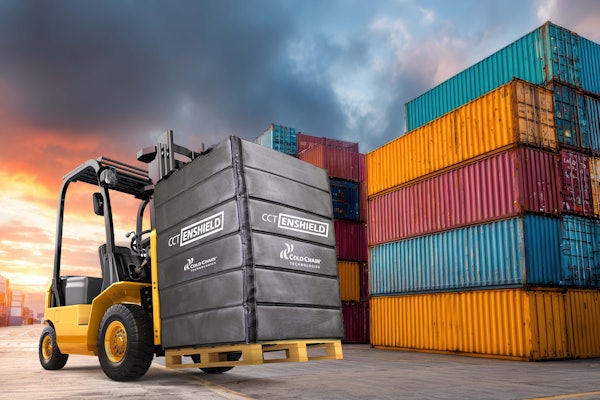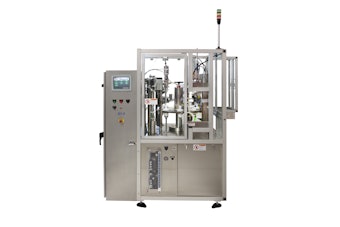At the show, groninger displayed its new flexcare 100 filling and closing system, which accommodates varied applications including eye drops at speeds of approximately 70 to 120 parts/min. The system offers a high level of flexibility and availability thanks to the quick and tool-free change of format parts. It is suited to processing a variety of products, including OTC pharmaceuticals, diagnostics, and dietary supplements in sprays, drops, syrups, and more. With a modular focus, a variety of functions can be added such as multi-stage gassing, filling, and weight monitoring. Even different types of closures can be easily accommodated. To reduce pausing on the line, revolving filling needles move with the items during filling, leaving more time for the actual filling process. This allows for larger filling volumes, even with higher relative outputs. groninger notes that the needle also follows the filling level in the containers during the filling process, which prevents foaming and dripping and further increases the safety of the process. The system offers precise filling for volumes from 10 to 270 ml.
The machine’s flexibility delivers benefits for those processing multiple closures on a single line. The system offers three different closing stations for different closure types: droppers or stoppers that are set; screw and sealing caps or spray pumps with dip tubes that are closed and screwed on with servomotors; and overcaps.
Products are transported in a smooth and stable manner through the system with walking beams; this allows users to fully implement automatic weight monitoring without issues. Generally, two load cells are installed. Due to the intermittent walking beams’ transport, the tare weight and then the gross weight of each bottle can be determined before filling. If net weight is determined to be out of spec, the item is sorted out and rejected. The line is designed so that all parts are easily accessible for cleaning. The system works with stainless steel volumetric rotary piston pumps for manual cleaning or with CIP/SIP capable ceramic pumps. A mass flow meter can be used for both small and large filling volumes. Another option are peristaltic pumps, which can also be used with disposable tubing systems.





















